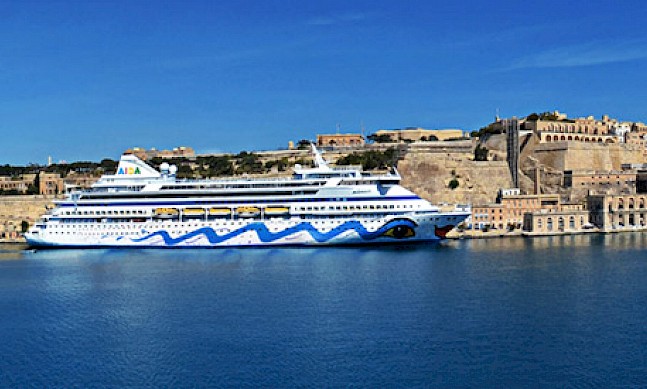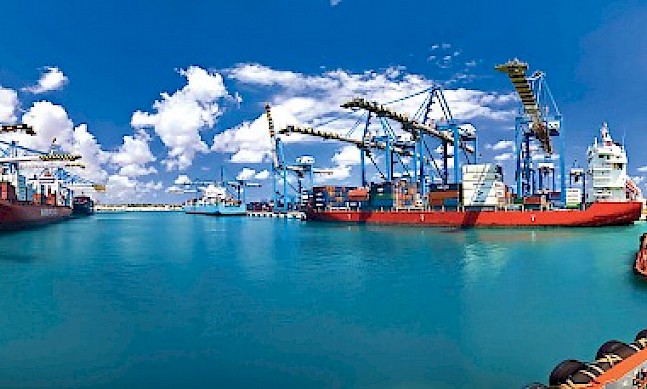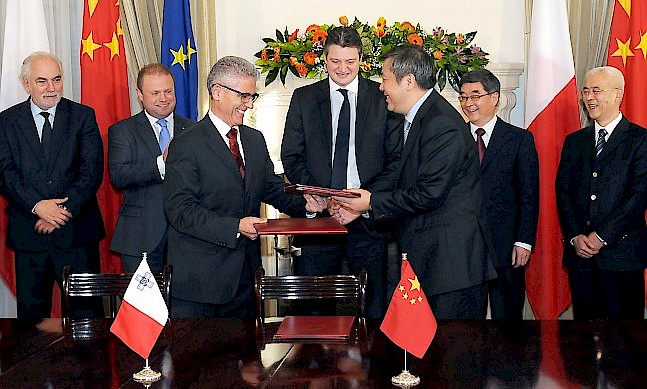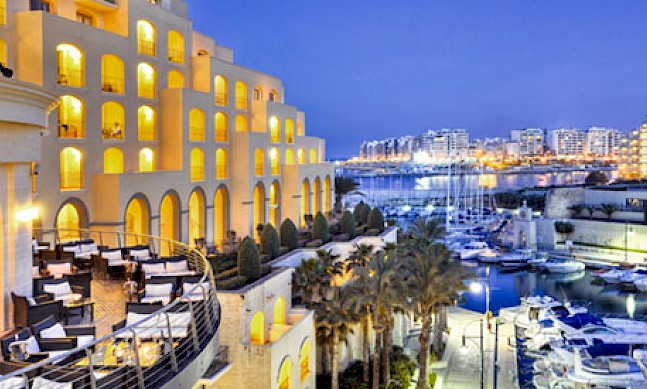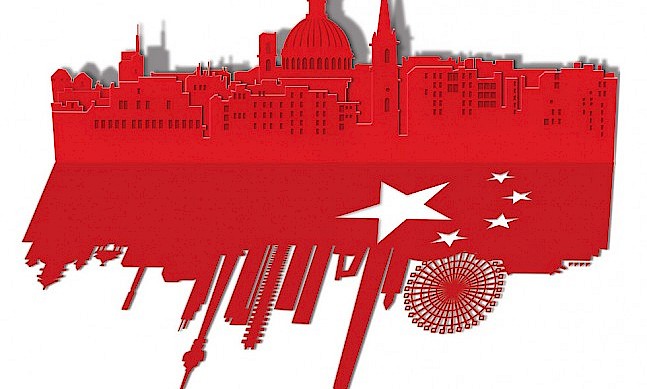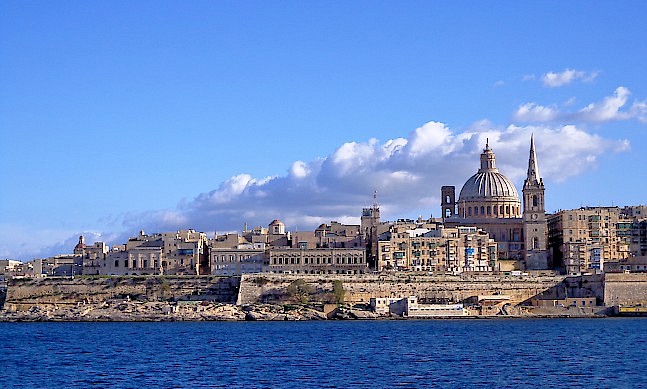Following a decisive victory at the nation’s polls last year, Joseph Muscat’s Labour Party is forging a new path for Malta, one which places greater emphasis on strengthening the island’s relationship with China – a major shift from the previous administration’s focus on Europe. He spoke to The Report Company about what makes Malta attractive to its Asian partner, and explained the benefits Malta brings to the table as a trusted European jurisdiction.
The Report Company: After 15 years in opposition, the Labour Party returned to power in 2013. What drivers brought the party back into government and what was Malta looking for during the last elections?
Joseph Muscat: I think that the need for change was the main driver towards our electoral victory in 2013. The Maltese people wanted a change in style in the way of doing politics. They wanted a more open government that guarantees transparency, reduces bureaucracy and sees that the wealth generated by the economy is better distributed. The Labour Party campaigned using a positive message throughout; tackling such pressing issues as renewable energy and energy conservation, inflation, education, healthcare and bureaucratic reform to make public administration more accessible to people and businesses alike. We also sent a message that we’re open for business and our electoral manifesto carried numerous concrete proposals that will help local and foreign business in Malta to thrive; particularly, we proposed to reduce bureaucracy by 25 percent and one of our first measures as a government was to appoint a commissioner with the specific task of reviewing legislation and public procedures in order to track where we can simplify and cut down on unnecessary bureaucracy.
TRC: After almost a year in office, what have been your main priorities so far?
JM: When we went into government over a year ago, we promised that our administration would not create earthquakes that bring instability to the economy. During the past year, we maintained continuity in those sectors where the economy was doing well and at the same time introduced swift measures to correct what we felt that could be done better. There’s still lot of work in progress but we’re actually seeing the first results and all indicators are positive. During the past year, for example, we managed to increase our economic growth fourfold over the previous year. Our efforts have been noticed and lauded not only by the European Union but also by international credit agencies.
TRC: How is your government promoting the attraction of further foreign direct investment into the Maltese economy?
JM: Fostering foreign direct investment is one of the priorities for my government. During the past year there’s been a lot going on at Malta Enterprise, which is our investment promotion agency. Since we installed the new chairman, Dr Mario Vella, the agency has strengthened its structures and sharpened its focus on its core business of attracting new FDI towards Malta. The results have been very encouraging. Last year Malta Enterprise registered a record year of approved investment projects. The thriving sectors are digital gaming, precision engineering, maritime and aviation. Our life sciences park is nearing completion and we’re targeting the last quarter of this year when the first tenants will move in and start operating.
“During the past year, we have managed to increase our economic growth fourfold over the previous year.”Post This
TRC: Malta was one of the first European countries to establish diplomatic relations with the People’s Republic of China in early 1972, then also under a Labour government. How has the return of this party to government impacted the country’s relationship with China?
JM: We are very proud of our relationship with China. In 1972, it was a Labour government that established diplomatic relations with China. However, it has been more than just a diplomatic relationship between the two nations. It has been a strong friendship and we’re adamant that it remains so. I believe that since we’ve been in government we strengthened Malta’s ties with China even more. To facilitate commerce between the two countries we’ve appointed a special envoy and our ambassador in China is doing sterling work to maintain a continuous dialogue with the Chinese government. I believe that the same thing is being done by the Chinese ambassador in Malta.
Then there is the involvement of Chinese investment in the Maltese energy sector; I think that there we can go a long way together. Not only are we investing together to strengthen the local energy sector but we’re also targeting larger markets by investing together in the development and production of alternative energy sources. The prospects are good and I have faith that this project will yield excellent return to both Malta and China in the near future.
TRC: How can Malta keep the momentum in terms of its attractiveness and competitiveness for China?
JM: China is currently the world’s second largest economy. However, China’s attractiveness to Malta goes beyond this economic fact. Our relationship is a lasting relationship of friendship. We’re interested in China as a whole; in its culture, economy and society. We hope to attract Chinese investors as much as we hope to attract Chinese tourists or Chinese students who can avail themselves of our educational facilities. Apart from our lasting friendship, we also have other concrete assets from which China can benefit.
As an EU member, Malta can become a platform for Chinese investors to access the European market. Fiscal incentives, a stable and safe economic climate, lifestyle and the strategic geographical location of the country: all these factors will surely interest any Chinese investor that wants to access the European or North African market. Malta, therefore, can be China’s platform towards Europe and North Africa.
TRC: What are your expectations of the EU-China Summit, which will be held in September 2014?
JM: We trust that the summit will be a very positive experience that will bring the two parties closer to each other. Malta is committed towards greater dialogue between Europe and China and will act according to such a commitment. Understanding is an overarching value characterising the relationship between Malta and China; our deep friendship has made us more sensitive to each other’s worldviews. Because of this, I think Malta is in an advantageous position to facilitate dialogue between Europe and China. That’s a role we are keen to assume and I think we can do the job very well.
“As an EU member, Malta can become a platform for Chinese investors to access the European market.”Post This
TRC: There has been much debate about the Individual Investor Programme (IIP). What will be its impact on Malta and how do you see it with regard to Chinese investors?
JM: The IIP has attracted lots of attention. Initially there were some misunderstandings, which are understandable when one is pioneering a particular project. When we explained better the rationale behind the programme and fine-tuned its workings following a wide-ranging consultation process, there were no longer any doubts about the validity and the value of the programme.
Following a few legislative changes discussed with the European Commission, Malta’s Individual Investor Programme has become the only such programme that has the official endorsement of the European Commission. With IIP we will be attracting high-net individuals towards Malta and consequently towards Europe. These people will be investing in property, government bonds and citizenship. We are very careful to ensure that in the process all the necessary due diligence will be done scrupulously. In turn, individual investors will benefit from fiscal incentives, mobility within the European Union and all the business benefits that being a European citizen brings.
TRC: As an island in the middle of the Mediterranean, Malta has been deeply impacted as a consequence of the unrest in North Africa. What are your expectations from the European Union and other neighbouring countries to tackle this issue?
JM: Irregular migration is a big challenge for Malta, particularly because of our small size and the limited resources we have at our disposal. The problem has increased steadily during the past ten to fifteen years. As a country, we are committed to showing solidarity with those migrants that risk their lives to escape from war-ridden territories and seek asylum. However we keep insisting to the European institutions that we cannot handle this problem on our own.
First of all, we don’t have the space or the resources. Secondly, this is a problem which cannot be solved by a single country on its own. It is not enough that the frontier countries of the Mediterranean, like Italy, Spain and Greece, ally themselves with Malta to voice their concerns. There need to be European solutions; it’s a problem for the whole continent and the whole continent has an obligation to work together to tackle this problem.
TRC: Another country that has ties to Malta is Libya. How do you foresee that this relationship could evolve?
JM: Apart from Sicily, Libya is the nearest land to Malta. Diplomatic and friendly relations between the two countries have been long established and have yielded a lot for the benefit of the two peoples.
Following the uprising against Gaddafi in 2011 there has been a lot of unrest in Libya. We have supported any legitimate government that has since come to power in Libya. We have tried to work very closely with the Libyans and there is a general willingness from their side to reserve a special relationship for Malta. Maltese businessmen have long been established in Libya and now many of them are actively contributing to the Libyan effort for reconstruction following the civil war.
Since the Labour Party has been in government, we have put in more effort to consolidate this relationship. During the past year, we have signed an agreement for preferential rates in the oil business once Libyan oil exports regain momentum. We have established medical agreements with Libya to offer medical assistance to the Libyan population, and we have drawn up agreements of an educational nature; in fact Libyan students come to Malta for special courses to give them new skills that they can use to help rebuild their country when they go back.
“Malta’s Individual Investor Programme has become the only such programme that has the official endorsement of the European Commission.”Post This
TRC: What changes would you like to see to Malta’s regulatory framework in order to make it a more competitive and attractive destination for investment?
JM: We are committed to reducing bureaucracy and making procedures and regulations more flexible, transparent and accessible. On the other hand we are also committed to safeguarding the good name that Malta has painstakingly earned over the years in terms of regulatory rigour and trustworthiness.
Malta is a name that carries a guarantee; its goodwill is a competitive advantage we are very keen to preserve. So, yes, we are open for business, and we’re facilitating regulation and procedures to facilitate business, but we’re serious about which is the investment that we want to carry our flag.
TRC: How would you like Malta to be perceived on an international level, particularly within the Chinese market?
JM: I want the world to see Malta for what it is. Being so small sometimes means that in certain parts of the world we’re nearly invisible. But when investors get to know Malta, they like what they find. Malta is not only a stable political and economic climate, a well-trained versatile English speaking workforce, an established industrial environment and a business-friendly financial and regulatory establishment. Foreign investors coming to Malta are constantly fascinated by the history that foreign direct investment has. Companies that came here thirty, forty, fifty years ago are still here, going strong, still believing that Malta is the best place for their investment to thrive. That’s why we always market our country for what it is: investors, as much as tourists or anybody else, appreciate the element of authenticity in what we do.
TRC: How would you like to see the relationship between Malta and China evolve over the coming years?
JM: As prime minister, I certainly aim to keep the close relationship we’ve established with China, possibly also by finding new ventures for close collaboration in various sectors. I think there’s a bright future for such collaboration and both Malta and China believe in this future. There’s also the commitment to nurture the friendship between our two nations.



